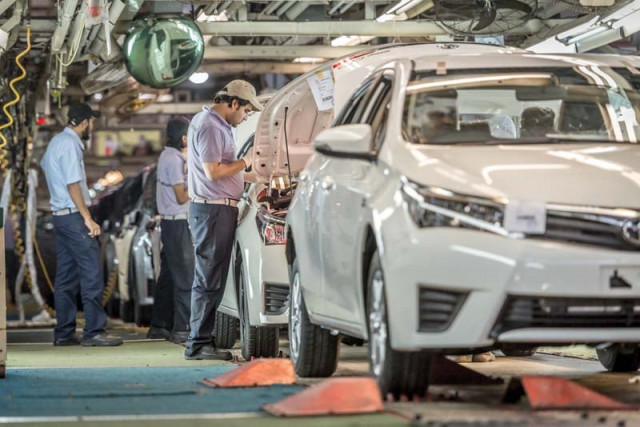Hybrid vehicle concessions withdrawn
Finance minister pushes for industry growth amid calls for SME, middle-class support

While presenting the budget for fiscal year 2024-2025, Finance Minister Muhammad Aurangzeb announced several reforms and initiatives, including the withdrawal of concessions on the custom duty for importing hybrid vehicles and other measures to promote the local auto industry.
He noted a significant price difference between hybrid and regular vehicles due to new technology. In 2013, it was suggested that some concessions be given in the custom duty to import hybrid vehicles. Now, with hybrid vehicles being locally produced and the price difference narrowing, the concession is being withdrawn to promote the local industry. The concession for importing luxury electric vehicles (EVs) is also being withdrawn because buyers who can afford $50,000 or more for an EV can also pay the due taxes and duties.
According to the law, he said, engine capacity-based advanced tax on buying and registering vehicles up to 2,000 CC is imposed. With significant surges in vehicle costs already witnessed, it is suggested that taxes on vehicles be imposed based on cost ratio instead of engine capacity. The minister also highlighted the government’s efforts on climate mitigation, including an allocation of Rs4 billion for EV bikes.
Auto Sector Analyst Mashood Khan commented, “The government’s decision to discourage the import of luxury vehicles is a positive step, as reflected in the budget. However, it was expected that measures would be introduced to enhance the production of trucks and buses, given that this sector has adequate production capacity. Unfortunately, the government continues to import buses, wasting precious foreign exchange. Additionally, there are no incentives for small cars to provide relief to the middle class.”
He added that the budget also falls short in addressing the needs of Small and Medium-sized Enterprises (SMEs). This sector remains continuously neglected, with no significant incentives or supportive policies except for export credit, he lamented. Implementing measures to support both the automotive industry and SMEs will foster growth and stability across various sectors, ultimately contributing to the overall economic health of the nation.
Reacting to the budget, auto sector experts and analysts said the government must give more incentives to promote the struggling auto industry and reduce heavy taxes on passenger cars so that middle-class people can afford them.
The finance minister stated, “We have continued working on the home-grown reform agenda, and the country will return to the epoch of sustainable growth as we have limited options. It is high time for making reforms. We should give central importance to the private sector in the national economy. Instead of benefiting a few, we must prioritise the people of the country. We are stuck in an economic imbalance due to structural factors that have pressured investment, economic growth, and export.”
He added that, “We must promote structural reforms to break the low growth cycle and rectify incentives in the economy. We need to shift to a market-driven economy from a government-determined economy. Economic growth must be based on savings and investment rather than consumption. Like other modern economies, we must limit the state’s footprint to essential public services.”



















COMMENTS
Comments are moderated and generally will be posted if they are on-topic and not abusive.
For more information, please see our Comments FAQ